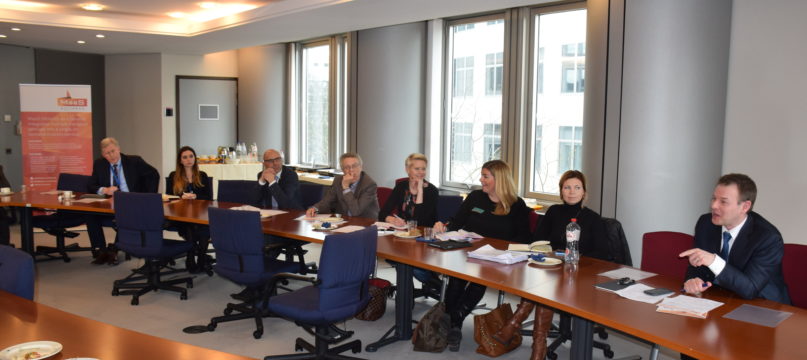
On 7 March, the Mobility as a Service (MaaS) Alliance and the British MEP Daniel Dalton hosted a lunch debate event at the European Parliament. During the event, examples of future MaaS services for 2017 were presented to Members of the European Parliament, representatives of the European Commission, and MaaS Alliance members. FIA Region I member, Touring Club Belgium announced its MaaS pilot operations that will launch on 21 March in Ghent, Belgium. Cubic Transportation Systems, the company known for running London’s Oyster Card system, also presented its ‘Vision for MaaS’.
The MaaS Alliance defines Mobility as a Service as ‘the integration of multiple transport solutions into a single mobility service accessible on-demand’. MaaS aims to be as attractive as owning a car and as ubiquitous as smartphones. MaaS service providers are looking to offering fully comprehensive mobility packages to consumers. With approximately €200 per month, a customer could buy a certain amount of access to mobility options, including access to the public transport, a number of taxi rides, car-sharing, bike-sharing and more. All of these would be booked via a single ‘mobility aggregator’ app. Also, the best transportation options would be proposed to users according to real-time information or any user preferences (congestion, cost, weather conditions, etc.). A question that MaaS service providers are anticipating at this stage is: can a mobility app with a mobility payment plan replace the need to own a car?
The MaaS Alliance is a strategic partnership of private and public actors committed to drive Europe-wide deployment of MaaS, and is now global in membership and reach. The Alliance addresses policy, regulation, standards, business models, commercial and competition issues and other framework requirements needed for an MaaS open market. The FIA is a founding member of the MaaS Alliance